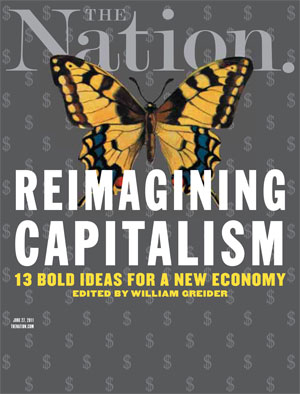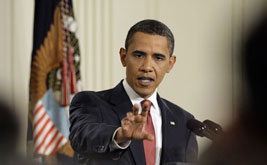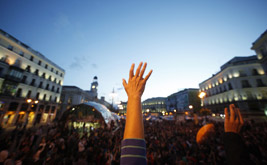Ivy Beleaguered
Washington, D.C.
“Faulty Towers,” William Deresiewicz’s excellent discussion of a dozen recent books on the world of higher education [May 23] correctly portrays the growing “adjunctariat” as contingent workers exploited by university administrators motivated primarily by the bottom line. But this academic underclass is rising up. At George Washington we 1,150 part-timers are now members of SEIU Local 500 with a contract that gives us, for the first time, job security, benefits and higher pay. It’s part of a national movement that will have an impact on higher education in all kinds of constructive ways.
CHESTER HARTMAN
Director of research
Poverty & Race Research Action Council
Petersburg, Va.
I find myself in agreement with most of William Deresiewicz’s fine article. He did make one assertion with which I take issue, however: “A scientific education creates technologists. A liberal arts education creates citizens.” I hope that in referring to “scientific education” he really meant engineering, electronics, computer science, aerodynamics, etc. Science, pure science especially, is truly one of the liberal arts. A citizen who is ignorant of, for example, quantum mechanics, relativity, radioactivity, the structure of the solar system, cosmology, global warming, evolutionary biology, genetics, etc., is not truly educated, and is ill equipped to deal with the issues that confront twenty-first-century society.
CAREY E. STRONACH
Anderson, S.C.
In addition to the calamitous developments at American universities William Deresiewicz describes, the Koch brothers are giving millions to institutions in
exchange for oversight on hiring and maintaining faculty members of economics departments. Their design is to promote
the teaching of unfettered capitalism. Clemson University has just received
$1.2 million for this purpose.
BONNIE S. LEDBETTER
Duluth, Minn.
There is truth in “Faulty Towers,” but it is not the whole truth. I have spent the past fifteen years of my thirty-four-year academic career teaching philosophy at the University of Wisconsin, Superior. We are a public liberal arts institution serving the surrounding largely rural and low-income region. Faculty teach four courses a semester. Classes average around twenty-five students. The administration has worked to increase full-time tenure-track teaching. Faculty is active in governance. Despite a governor who is ideologically opposed to public institutions and to our faculty union, we persevere.
RICHARD HUDELSON
Philadelphia
The article fails to mention what is happening to students. Student debt is skyrocketing to obscene levels while a BA in most liberal arts fields is worth very little. I believe my BA in English actually hurt my career (programming). I will be paying it off until I am 40.
AARON COUCH
Chicago
I’ve thought for some time about why tenured professors don’t seem to be as bothered by the fate of graduate students as they should be. I think they unconsciously believe they got their jobs because they worked hard doing brilliant work; they think the “best” students are as brilliant as they are and will also find tenure-track jobs in desirable locations. Everyone else must have made mistakes.
I did get a tenure-track job, but it was at a regional campus of a state school in the middle of nowhere. Unable to find a job in a major city, I finally quit, before I was up for tenure, and moved back to Chicago. The decision clearly shocked and disappointed at least one of my former professors, but everyone outside academia thought my choice was obvious. What am I doing now? Adjuncting, of course.
KAREN LEICK
Los Angeles
William Deresiewicz is half right in his trenchant critique of the problems that beset higher education. He is right that tenure is important, that academic jobs are scarce and that faculty have to speak out more. But he is curiously wrong about who our students are and what they desire. He writes: “Do we really want our higher education system redesigned by the self-identified needs of high school seniors?” More than half of higher education is composed of part-time working adult students. Why would we not try to redesign our systems based on what they need? They may not know their Shakespeare from their Chaucer, but they do know they want learning to be speeded up and made more relevant to their lives.
Faculty generally resist teaching in the summer; classrooms are empty on weekends; general education is a meaningless smorgasbord that lacks coherence. Students are savvy consumers, and they no longer have the luxury to travel in the summer, kick back on the weekend or take classes simply because it’s a requirement. Until the faculty think about what students need rather than what we want, the system will be under duress.
WILLIAM G. TIERNEY
University & Wilbur Kieffer Professor of Higher Education; director, Center for
Higher Education Policy Analysis
University of Southern California
Chicago/Schaumburg, Ill.
Yes, there are problems in “higher” education, and we need to admit there are problems before they can be fixed. William Deresiewicz’s article is a good start. One factor he did not cover is the decline in reimbursement from corporate America to employee/students. Although university costs have gone up, reimbursement has been decreasing. Businesses were willing to help employees in the 1980s. Now there are dollar caps per semester; companies cover only business-related classes; and they pay 100 percent for an A, but only 50 percent for a C. It puts pressure on a student working full time, with family and community commitments.
I taught for twenty-two years in a small private university. The saddest part of the change from the 1980s to the 2000s is that of “learning is fun” to “learning is drudgery.”
ROGER CLERY, professor emeritus
Roosevelt University
Los Angeles
If William Deresiewicz’s “Faulty Towers” were the only essay The Nation published this year, it would be enough.
PHYL VAN AMMERS
‘Policing Pregnancy’ Indeed
Bluff Point, N.Y.
Re Michelle Goldberg’s “Policing Pregnancy” [May 9]: another rich, fat, white guy in a suit condemning a poor woman for making a difficult decision about an unwanted pregnancy. The next time I see one of these sanctified fools, like Carl Swimmer (R-Utah), giving birth, I will listen to his misogynistic diatribes. Until then I will acquiesce to a woman’s right to choose. Butt out, butthead! If men were sentenced to prison for killing sperm (the actual beginning of life), think of all the life sentences they’d get for those children left on the shower curtain.
MARK D. SMYTH Read More
Our Readers











